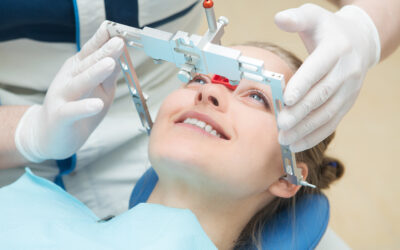Periodontal Gum Disease Treatment
Let us Help You Treat and Prevent Periodontal Gum Disease Make an AppointmentEmergency Procedures
Get immediate treatment to prevent further damage or pain. WestClair Dental is conveniently open on nights and weekends.
Book an Appointment
Hours of Operation
Monday – Tuesday 9 am – 8 pm
Wednesday – Thursday 10 am – 7 am
Friday 9 am – 4 pm
Saturday 9 am – 3 pm
Sunday Closed
WESTCLAIR DENTAL
Periodontal Gum Disease Treatment Toronto
Periodontal Disease affects the area around your tooth. It affects the gums and bones that support your teeth. A sticky film of bacteria, food debris, and saliva i.e. plaque should be removed from the teeth. If it is not treated within the right time, it can turn into calculus (tartar) and it will start destroying the gums and bone. The symptoms of periodontal disease include red, swollen, and bleeding gums.
80% of people have periodontal diseases and being a painless disease, in its initial stages, most of people are not aware of it.
Periodontal disease is one of biggest reasons for tooth loss and is also linked to various diseases such as stroke, bacterial pneumonia, diabetes, cardiovascular disease, and increased risk during pregnancy.
There is on-going research to determine if inflammation and bacteria formed during periodontal diseases affect these systemic diseases and conditions. Smoking is another reason for periodontal disease.
A healthy lifestyle with a balanced diet and regular dental check-ups can lower the risk of periodontal disease.
Signs and Symptoms of Periodontal Disease:
- Bleeding gums – There should be no bleeding in the Gums, even when you brush vigorously or use dental floss
- Loose teeth – Also caused by bone loss or weakened periodontal fibers
- New spacing between teeth – Caused by bone loss
- Persistent bad breath – Caused by bacteria in the mouth
- Pus around the teeth and gums – A Sign that there is an infection around your teeth
- Receding gums – Loss of gum around a tooth
- Red and puffy gums – Gums should never be red or swollen
- Tenderness or Discomfort – Plaque, calculus, and bacteria irritate the gums and teeth
About Periodontal Disease
WESTCLAIR DENTAL
Why Choose us
Family-oriented dentistry
New, innovative and technologically advanced clinic
Experienced group of dental professionals
Accepting new patients
Welcoming and comfortable environment for patients
Bill direct to insurance
WESTCLAIR DENTAL
Periodontal Health Procedures
Diagnosis
A periodontal examination helps your dental hygienist to determine if you have periodontal disease and this exam should be a part of your regular dental check-up.
There is a pocket or space between the tooth and gums known as the sulcus, which is measured by a periodontal probe. A healthy sulcus should be 3 or less than 3mm without any bleeding.
With the help of the probe, your dentist will evaluate if the pockets or space is deeper than 3mm. When the pockets are more than 4mm, it usually indicates gingivitis or inflammation of the gums and as the pockets get deeper the disease progresses. Your dentist will analyze the depth, amount of bleeding, inflammation, tooth mobility, etc. to diagnose the below:
Gingivitis
Gingivitis is considered as the first stage of periodontal disease. When the plaque and its toxin by-products irritate the gums, making them tender, inflamed, and likely to bleed, it will lead to gingivitis. This disease is reversible by dental scaling and excellent home care including brushing twice and daily flossing.
Periodontitis
Irregular brushing and improper home care can result into plaque and calculus (tartar) buildup and when they continue to grow, the gums begin to recede from the teeth. Deeper the pockets, more are the chances of bacteria and other toxins. Symptoms of periodontitis include highly irritated and inflamed gums that bleed easily. There might be a slight to moderate bone loss as well.
Advanced Periodontitis
A periodontitis disease can become more advanced if not treated on time and your teeth can lose more support as the gums and bone gets destroyed by bacteria and toxins present in plaque and calculus. The affected teeth can become loose and may be lost. Other than irritated and inflamed gums, moderate to severe bone loss can be there.
Treatment
The treatment of periodontal disease depends upon the severity of the disease. Your dental hygienist will evaluate the best-suited treatment for you.
When the irritants such as bacteria, plaque, and tartar continue to grow inside the pockets, it damages the gums and the bone supporting the teeth.
To avoid the progression of the disease which can lead to periodontal disease, it has to be treated in the early stages of gingivitis so that no further damage to bone happens. One or two regular cleanings are recommended along with instructions on better home care and oral hygiene has to be followed.
In the advanced stages, scaling and root planing (deep cleaning) is suggested. It is done on one quadrant of the mouth when the area is numb. During the process, tartar, plaque, and toxins are cleaned from above and below the gum line (scaling) and rough spots on root surfaces are made smooth (planing).
After the process, the gum tissue and pockets will heal with time and a three-month treatment is recommended if you have periodontal disease. During the treatment, medications, medicated mouth rinses, and, an electric toothbrush is recommended to help control infection and healing.
Sometimes periodontal surgery is also recommended if the pockets do not heal after scaling and root planing. A Periodontist (specialized in periodontal disease) can also help you with the treatment is you have advanced disease.
Maintenance
When the plaque is not removed within twenty-four hours it can turn into calculus (tartar). Regular home care which includes brushing and flossing can help control plaque and tartar formation.
Your dentist will recommend you to have regular maintenance cleanings once in every three months after the treatment of periodontal disease. During the regular check-ups, the pocket depths will be carefully checked by your dentist to see if they are healthy, with no sign of diseases. Your dentist will also remove plaque and tartar above and below the gum lines during these visits.
In addition to your periodontal cleaning and evaluation, your appointment will usually include:
- Examination of diagnostic x-rays (radiographs): Used for detection of tooth decay, tumors, cysts, tooth positions, root position, and bone loss.
- Examination of existing restorations: Check current fillings, crowns, etc.
- Examination of tooth decay: Examine tooth decay by checking all the tooth surfaces.
- Oral hygiene recommendations: Review and recommend oral hygiene aids as needed. (Electric toothbrushes, special periodontal brushes, fluorides, rinses, etc.)
- Teeth polishing: Remove plaque and stains that are not usually removed during brushing and flossing
Healthy oral hygiene with balanced diet and periodontal cleanings are recommended to keep the periodontal disease under control.
We Offer Affordable Financing for our Customers

WESTCLAIR DENTAL
From Our Blog
Discover Exceptional Dental Care at West Clair Dental in Toronto
Introduction: Achieving good dental health is essential to achieving overall well-being, and access to the right dental clinic plays an important role in achieving this goal. In Toronto, West Clare Dental stands out as a specialist place for high quality dental care....
Revitalize Your Smile with Crown and Bridge Treatments at West Clair Dental in Toronto
A confident smile can open doors, and at West Clair Dental in Toronto, we're committed to restoring yours with the highest quality crown and bridge treatments. Whether it's repairing a damaged tooth or filling the gaps left by missing ones, our expert team is here to...
Cosmetic Dentistry Treatments
Regarding cosmetic dentistry, WestClair Dental is ready to help. We love giving people reasons to smile. Being confident to share your smile is essential in today’s world. In this blog, we will focus on some cosmetic dentistry trends. Teeth Whitening Cosmetic Bonding...






